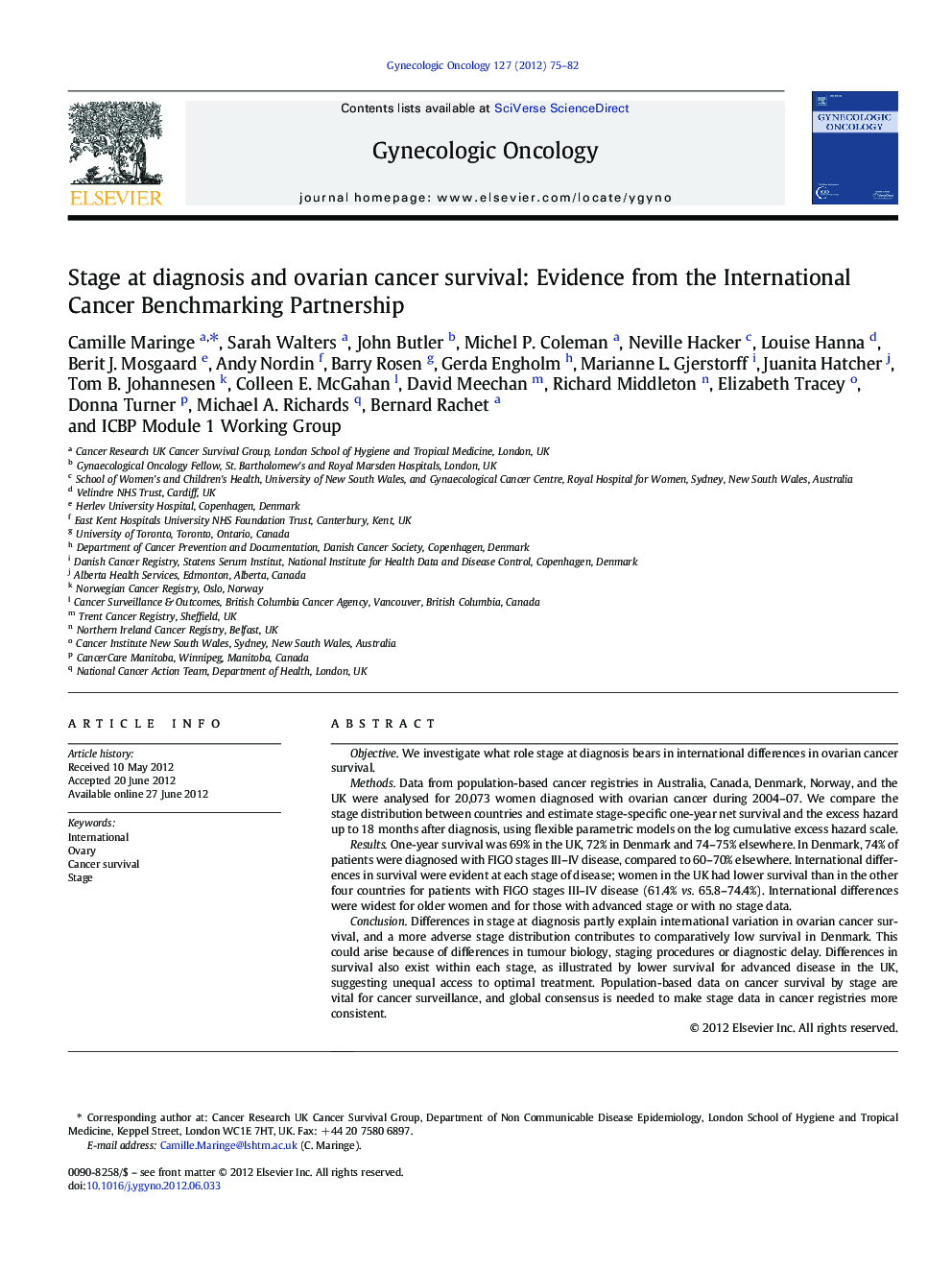| کد مقاله | کد نشریه | سال انتشار | مقاله انگلیسی | نسخه تمام متن |
|---|---|---|---|---|
| 3946900 | 1254391 | 2012 | 8 صفحه PDF | دانلود رایگان |

ObjectiveWe investigate what role stage at diagnosis bears in international differences in ovarian cancer survival.MethodsData from population-based cancer registries in Australia, Canada, Denmark, Norway, and the UK were analysed for 20,073 women diagnosed with ovarian cancer during 2004–07. We compare the stage distribution between countries and estimate stage-specific one-year net survival and the excess hazard up to 18 months after diagnosis, using flexible parametric models on the log cumulative excess hazard scale.ResultsOne-year survival was 69% in the UK, 72% in Denmark and 74–75% elsewhere. In Denmark, 74% of patients were diagnosed with FIGO stages III–IV disease, compared to 60–70% elsewhere. International differences in survival were evident at each stage of disease; women in the UK had lower survival than in the other four countries for patients with FIGO stages III–IV disease (61.4% vs. 65.8–74.4%). International differences were widest for older women and for those with advanced stage or with no stage data.ConclusionDifferences in stage at diagnosis partly explain international variation in ovarian cancer survival, and a more adverse stage distribution contributes to comparatively low survival in Denmark. This could arise because of differences in tumour biology, staging procedures or diagnostic delay. Differences in survival also exist within each stage, as illustrated by lower survival for advanced disease in the UK, suggesting unequal access to optimal treatment. Population-based data on cancer survival by stage are vital for cancer surveillance, and global consensus is needed to make stage data in cancer registries more consistent.
► Where overall survival is low, this is partly attributable to a more adverse stage distribution.
► Stage-specific survival still differs widely between jurisdictions.
► Global cancer surveillance requires consensus on data about diagnostic investigations and stage.
Journal: Gynecologic Oncology - Volume 127, Issue 1, October 2012, Pages 75–82